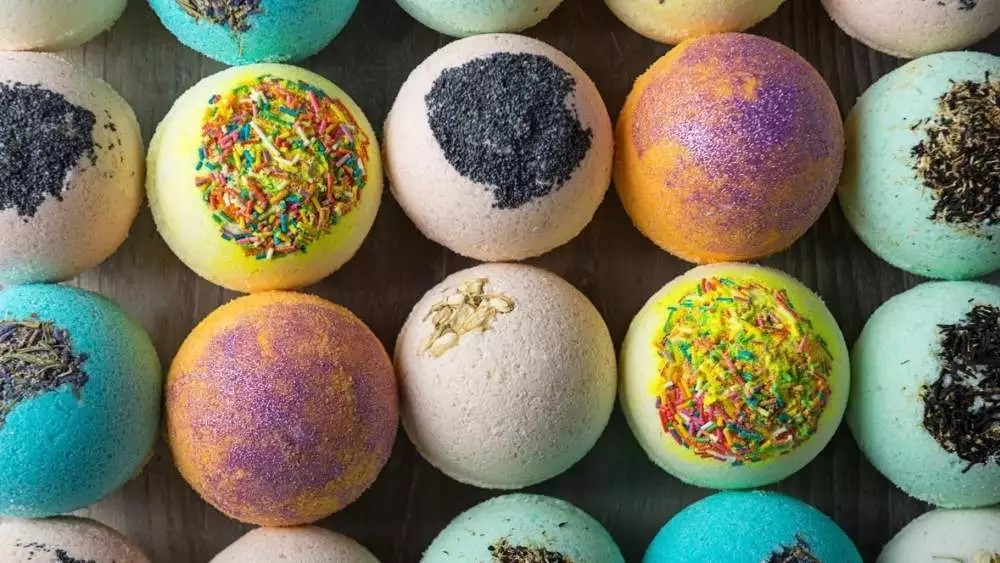You may have heard that bath bombs can clog your pipes. However, there is some controversy about whether these products can damage your plumbing. There are several methods to prevent bath bombs from clogging your pipes. One method is to use a nylon stocking secured with a hair tie or rubber band. This will prevent the decorative material from reaching the drain. A similar method is using a drain filter.
Do Bath Bombs Hurt Plumbing?
Using bath bombs in your bathroom could be better because they can clog up drains. Instead, it would be best if you used a solution of water and vinegar. Pour the solution into the drain, allow it to sit for a few minutes, and then flush with hot water. This will help remove oil and debris from your pipes. If the clog persists, you may need to call a plumber.
A drain strainer can also prevent bath bomb residue from clogging drains. Place the bath bombs in a strainer before pouring water into them to remove them. The filter will catch larger debris that could otherwise enter the drain. In addition, you can use removable tub stoppers that are equipped with filters.
Bath bombs can clog drains because of the oils they contain. These oils can harden when the temperature drops and block the pipes. While essential oils are harmless, other materials in bath bombs can cause drain clogging.
Do Bath Bombs Clog Your Drains?
While bath bombs can be great fun, they can also clog your drains. These chemicals can cause both mild and severe clogging, so it’s essential to flush them every two to three uses. Failing to do this can cause a large clog that may require the help of a plumber.
Luckily, there are several ways to prevent bath bomb clogs. First, you can use a nylon stocking to place inside your drain. This will help trap debris that could otherwise go down the drain. Next, use hot water to flush the clogged drain.
While bath bombs usually contain baking soda or Epsom salt, they can also contain essential oils, flower petals, cornstarch, or glitter. Since these ingredients are insoluble, they can stick to your drain pipes, leading to a clog.
Are Bath Salts Bad For Plumbing?
Bath salts and other ingredients in bath bombs can cause major clogs in your plumbing. These ingredients can congeal when the water cools and stick together with hair and other debris in your pipes. Also, because they don’t completely dissolve, bath oils can cause clogs because they latch onto other debris.
To prevent clogs, you can use Epsom salt in your bath water. However, you must ensure that the salt completely dissolves in the water. If it doesn’t, you can use boiling water to dissolve it. Another way to ensure it will not clog your pipes is to mix Epsom salt with baking soda.
Bath bombs are popular bath products that contain Epsom salt and sea salt. However, these substances don’t dissolve completely in water, which can cause clogs in plumbing and septic drain fields. High concentrations of these salts can also harm the bacteria in your septic system.
Do Bath Salts Clog Pipes?
Several factors can contribute to the clogging of pipes. First, bath oils do not dissolve in water and can accumulate in pipes. Similarly, titanium dioxide can accumulate in piping and latch onto other debris, creating a clog. If you have an Epsom salt bath, you should check that it dissolves completely in water. If it does not, you can fill a mesh net with the amount you want and drop it into the drain.
Another cause of clogged pipes is bath bombs. These products typically contain oils, fragrances, and salts. They often contain baking soda and Epsom salts, which can clog pipes. Other ingredients in bath bombs, such as coconut oil, cornstarch, and glitter, cannot dissolve in water and may clog pipes.
If you want to avoid clogging your pipes with bath bombs, use a shower filter afterward. You can also place a nylon sock around the drain to catch the residue.
Can I Put A Bath Bomb In My Toilet?
Bath bombs can be dangerous for your toilet and drain. The bath bombs’ ingredients are oils, grease, and fats, all substances you don’t want to introduce into your plumbing system. Even if you don’t use them, these substances can cause a clog. You can try using these bombs to keep your toilet smelling fresher. You can store them in a glass jar and then toss them into your drain with water. The baking soda will do a great job of cleaning your drain and toilet.
If you’re planning to make your bath bombs, you’ll need citric acid and baking soda. These two substances react with warm water and release carbon dioxide gas, which causes a fizzy sensation. Bath bombs can be as simple as a handful of ingredients or as complex as a complicated and expensive science experiment.
A bath bomb that crumbles is usually too dry. To make the mixture moister, add more oil or witch hazel. This will make it less likely to crumble, but too moist bombs can expand in the bathtub and mold. The right amount of moisture is critical to creating a firm bath fizzy.
Will Epsom Salt Damage Drain Pipes?
Epsom salt can be used in various ways to clean your drains, but you should be careful what you put in them. It is not corrosive and safe to use around stainless steel and copper pipes. It also does not damage the human skin or lungs. It is so non-corrosive that it can be mixed with other reactive agents and does not cause a toxic chemical reaction.
To use Epsom salt in a drain, first, make sure that your drain is empty. It may be filled with debris, fungus, and other materials. After pouring the solution into the drain, stir it thoroughly to ensure all clumps dissolve.
Although Epsom salt is a natural mineral that can be used in drains, it can cause a temporary blockage. However, if the clog is caused by debris, grime, or other hard objects, it will damage the pipe. This is particularly true for old houses with stainless steel drains. Epsom salt and hot water can also damage porcelain and toilet wax, so avoiding this remedy is best.
Can You Flush Epsom Salt Down The Toilet?
To clean a toilet, you can use Epsom salt, a common household item. It is a great way to get rid of clogs. It should be poured into the toilet and left for 30 minutes to an hour. You can also mix it with dish soap to remove stubborn clogs. The salt can break down clogs, but you should put at most four cups in the toilet.
Epsom salt is safe to flush down the toilet when used as directed. It creates a fizzy reaction when it hits the water and helps dislodge clogs. After adding Epsom salt to the toilet bowl, leave it for at least 20 minutes. After that, flush it out with hot water.
Alternatively, mix one cup of Epsom salt with half a cup of baking soda or vinegar. The salt will create a fizz, which will unclog the toilet and remove biodegradable waste from the drain. However, you should note that Epsom salt will damage stainless steel gutters, so be careful when adding it.
Can Bath Salts Block Drains?
Although bath salts and bath bombs are made to dissolve, the substances can linger in your drain. This can lead to a clog and attract debris. Some bath bombs contain undissolvable materials such as confetti, flower petals, glitter, leaves, jewelry, and stickers. These products are more likely to clog drains than other products.
Because bath oils do not dissolve in water, they can thicken and move down the drain. Titanium dioxide, another common clog-causing substance, works similarly. These ingredients build up in piping and latch onto other debris. That’s why they can be such a major problem.
When used properly, Epsom salt can dissolve in water and unclog drains. However, it is important to ensure your product is fully soluble before using it in the drain. If unsure, you can also place a mesh net with the appropriate amount of Epsom salt and drop it into the drain.
Conclusion
Hot and spalike tubs use a pump to suck water into and force water out of their jets. Most bath bombs also include Epsom salts, known for soothing muscle aches, and oils, such as coconut, soybean, or olive oil, to form a cohesive mass, much like adding an egg to meatballs to keep them intact. These other ingredients might include cornstarch, essential oils, flowers, cocoa butter, and glitter. A residue may cling to the interior of your pipes if you add extra ingredients that do not dissolve in water.
They make the bath look beautiful but can cause problems when using a water heater in the bathtub drains and sewer line. If you want to enjoy bath bombs in your bathtub without damaging their components, there is a way to do so. Using bath bombs regularly will not cause problems if used responsibly. You may get a clogged bathtub drain if you use a bath bomb with toxic ingredients. Clean your drains from bath bomb debris with the help of a professional plumber.



